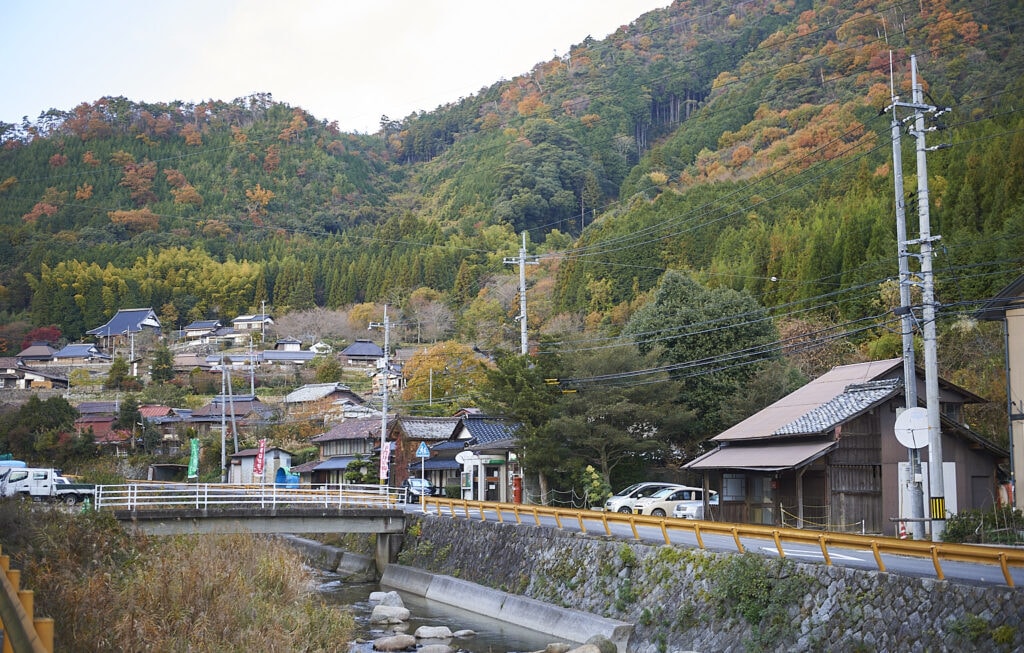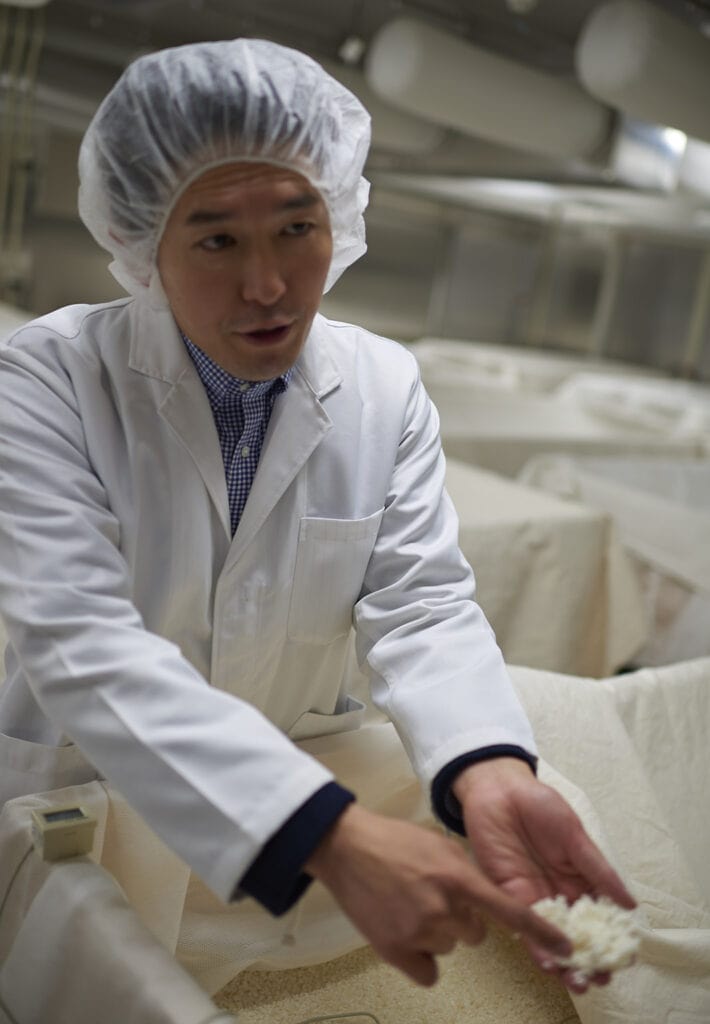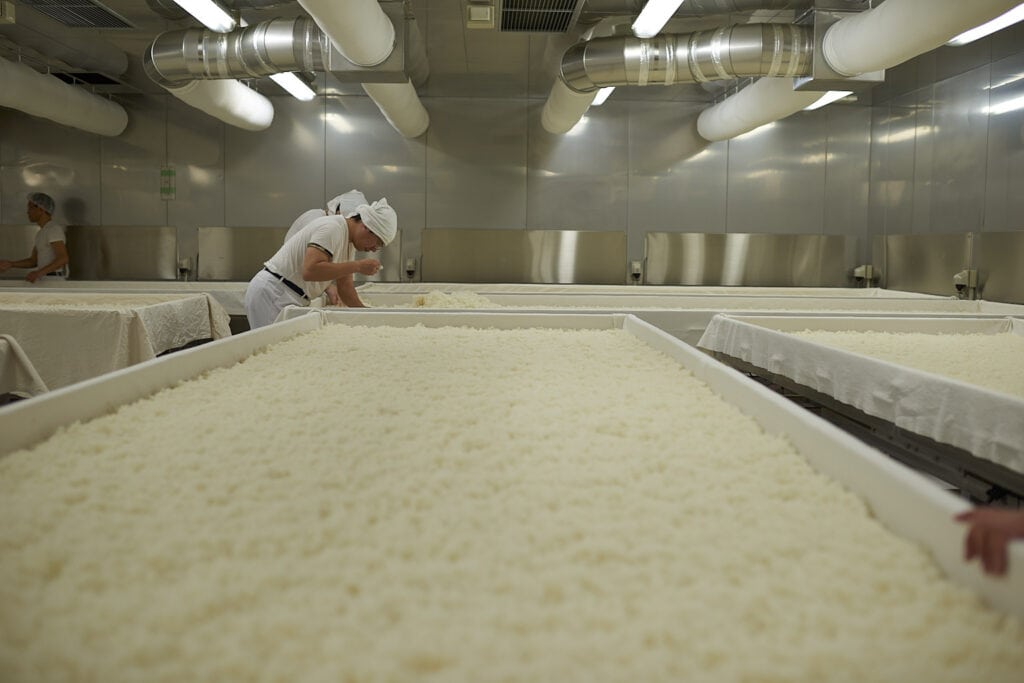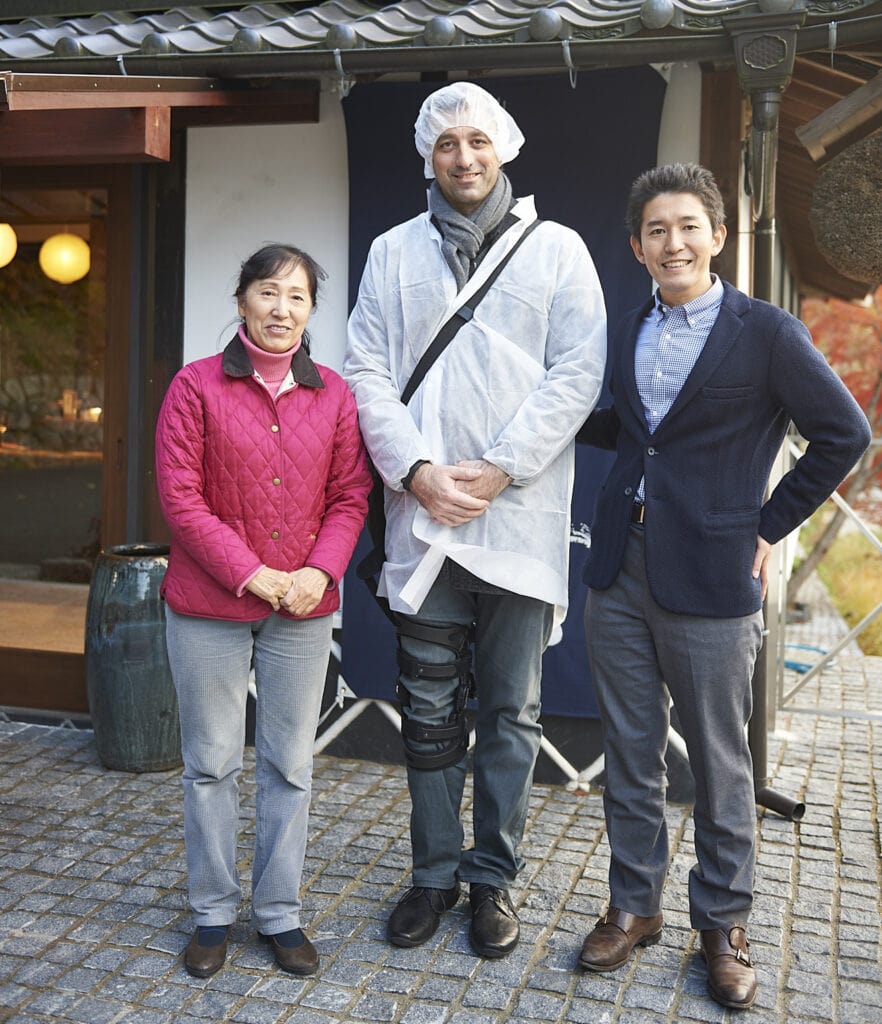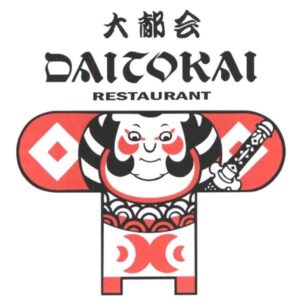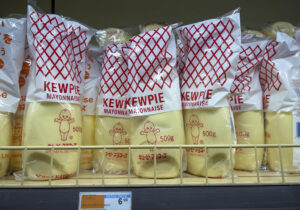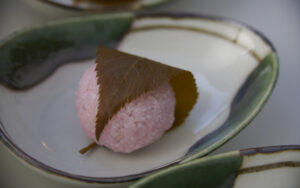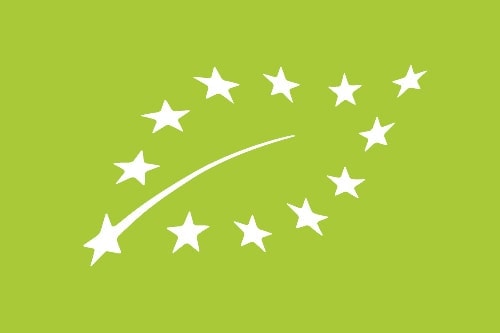The world of many different types of sake is also complex for foreigners because the brand name is often not the company name. Such a case exists with the Asahi Shuzo brewery from Yamaguchi: there are certainly many companies in Japan that bear the name Asahi (including the beer), but while hardly anyone in the West can think of anything to do with this name in relation to sake, the brand or product name is already known by sake lovers worldwide: Dassai.
Dassai - popular sake around the world
A formerly small and loss-making brewery deep in the remote mountains of Yamaguchi Prefecture has, in a comparatively short time, made a name for itself as a first-class Daiginjō-It has become the best-selling sake brand in Japan and abroad.
Dassai's sales have grown 40 % in the last 30 years, and its unique marketing strategy has turned a hometown brewery on the verge of bankruptcy into a $100 million global brand that leads the international distribution of sake.
What does Dassai mean?
The name is "Dassai." It sounded a bit unusual even for Japanese and means "otter festival", which in the Yamaguchi region is an old word for how the otters laid out their caught fish at a certain time, as if they were displaying them in a kind of festival. It can be said that Asahi Brewery has also succeeded in this worldwide with its Dassai brand sake.
Success born from a challenging history
Hiroshi Sakurai, who is the third generation to run the brewery, was the key figure in the creation of the Dassai brand in the 1980s.
After numerous attempts, he decided to use only sake of the Class Junmai Daiginjō to brew exclusively from Yamadanishiki, the king of sake rice, is manufactured - out of a simple desire to deliver a higher quality product.
At that time, the number of sake breweries in the country and sake consumption were steadily decreasing every year. He also began to diversify by investing in beer manufacturing and restaurant operations, which did not pan out. Financial turmoil and lack of resources even caused the brewmasters to leave the brewery in 1999. However, this adversity turned out to be a great opportunity, and Mr. Sakurai decided to implement a series of reforms.
A modern, number-managed family business
Traditionally, sake is brewed with the full authority of the Tōji, the head brewer, who relies on his knowledge, experience and intuition to make the sake.
First, company owner Sakurai controlled the brewing know-how with numerical values and visualized the data, which enabled him to build a sake brewery without Tōji.
Moreover, he decided to stop relying on the depopulating local market and chose Tōkyō as the location for his market strategy. His target was deliberately a narrow, modern consumer segment: younger women who normally steer clear of sake consumption. This was an innovative approach to offering clear, aromatic sake that could be enjoyed in a wine glass.
Confident use of numbers in the product name
At that time, it was also not yet customary to advertise clearly with the polishing grade of the sake - Hiroshi Sakurai, however, confidently took the respective polishing grades 50 (later 45), 39 and 23 as names on the label.
The rice polish level is actually an essential component of each sake, but can sometimes seem alienating if not explained at the time of consumption. It is a simple metric that indicates how much rice is polished to achieve the flavor/quality level targeted by the brands.
At the time of Dassai's launch, a polishing grade of 23 % - meaning only 23% of the original rice mass is still used in sake production - was an all-time high in the industry, so the simple brand name clearly represented this high quality and caught consumers' attention without further explanation.
Strategy leads to worldwide success
This strategy has worked brilliantly, and Dassai has taken the sake market by storm. In terms of sales, the company now ranks eighth in the sake industry, alongside the major Japanese sake brewers.
As a next step, the brewery decided to focus the company on overseas markets and expand its distribution channels to the USA.
At the same time, it cannot be said that Dassai today would put mass before quality. One hears, for example, that Dassai Japan wants to keep very close tabs on what temperature prevails in the cold stores of the intermediate warehouses around the world. In Japan, they know that in order to protect their own reputation, they have to pay very close attention to how the product reaches the end consumer.
The brewery has also expanded its presence in the European market by opening a joint restaurant with world-famous French chef Joel Robuchon in Paris.
Currently, Asahi Shuzō is establishing a sake brewery in New York State in collaboration with CIA University (Culinary Institute of NewYork), one of the most prestigious culinary schools in the Western world.
By doing so, Dassai aims to make high-quality sake accessible to everyone, everywhere, at a fair price, rather than reserving it for a limited group of solvent connoisseurs.
Dassai has successfully overcome the image of mass production equating with inferior quality and remains a national brand that many Japanese are passionate about, and it is well on its way to becoming an even bigger global brand.
In our Restaurant sansaro accompany us besides earlier also the Dassai 39 for many years the Dassai 45 and the Dassai 23which you can buy from us in large and small bottles and every now and then also in the Sake Tasting Flight can taste.

